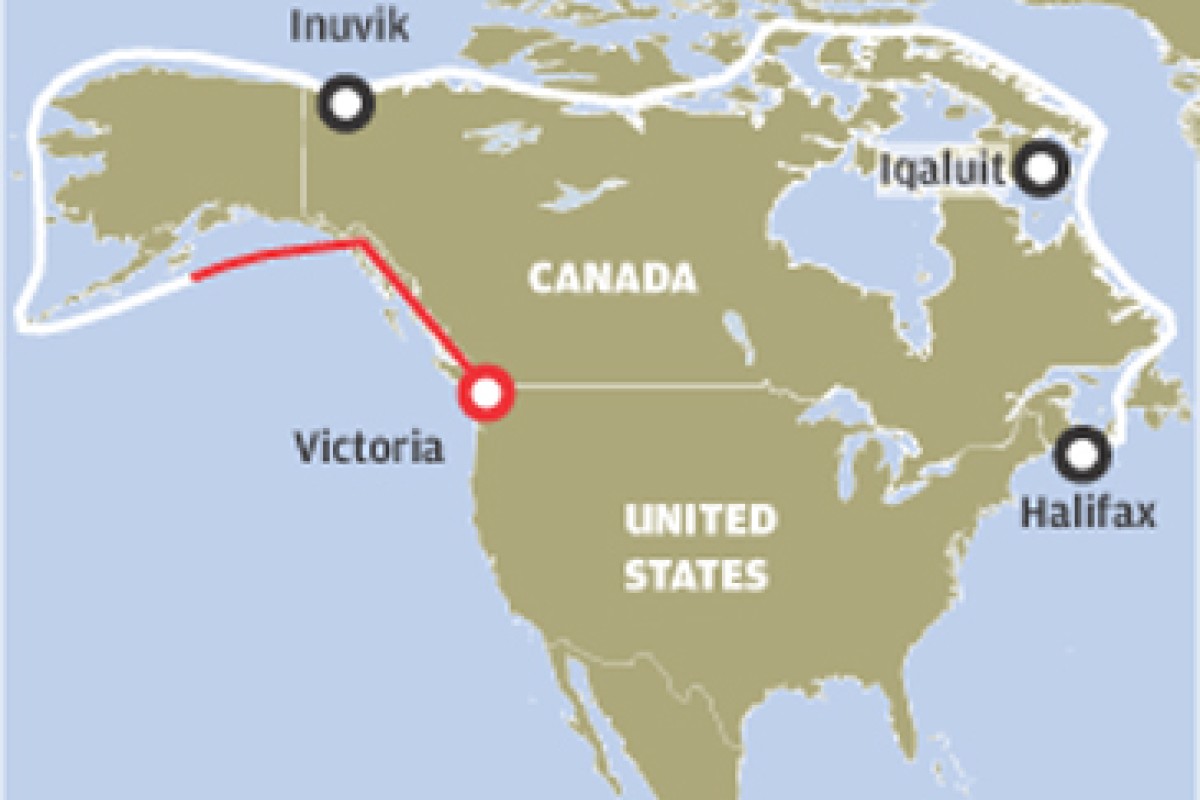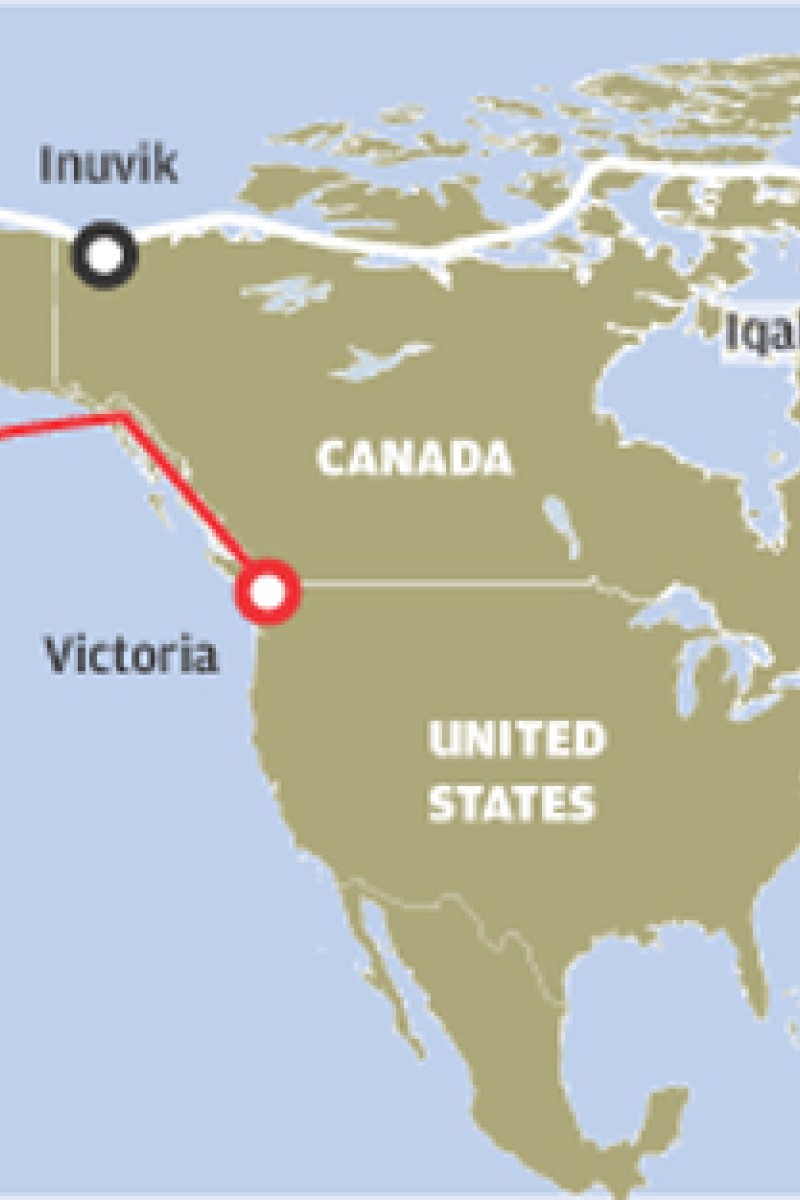 iii
iiiSailing through the Northwest Passage in one season has been difficult in the past because the sea was covered in several metres of ice. But sea ice is melting due to climate change, and that's made it possible for an average sailing yacht to attempt the passage. But how much ice will there be?
Every expert says the same thing: 'The only thing you can assume in the Arctic is that nature will surprise you.' I read the annual ice forecast by the Canadian government. We're most interested in the Western Arctic, since we are sailing from west to east. The report predicts warmer temperatures, which should help. The report speaks about how first-year ice, or ice that is only one year old, is getting thinner, with more of it melting each summer. This means less ice survives to become the thicker and harder multi-year ice which covers much of the polar seas. First-year ice keeps the multi-year ice from breaking up and drifting south into our planned route.
But as there is less young ice each summer, the thick ice is able to float south into the shipping channels. This could cause big problems as older ice tends to be harder and generally comes in larger pieces. Of concern for the western Arctic region for this summer, is the unusual amount of old ice in Franklin Strait and M'Clintock Channel.
This will most certainly prevent the clearing of the Northwest Passage for a fourth consecutive year and affect transit through the Victoria Strait region during late August and early September. We're keeping our fingers crossed.
If you have any questions, e-mail them to [email protected] with 'postcards' in the subject field and we will forward them to Cameron. You can follow his voyage in his weekly log book in Young Post and on OPEN PASSAGE
